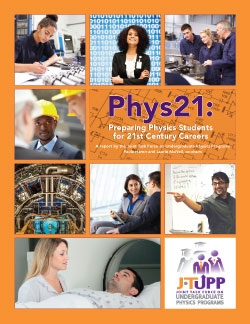J-TUPP
Joint Task Force on Undergraduate Physics Programs
J-TUPP is a joint task force convened by APS and the American Association of Physics Teachers (AAPT) and was charged with preparing a report that engages and informs physicists in answering the question:
What skills and knowledge should the next generation of undergraduate physics degree holders possess to be well prepared for a diverse set of careers?
The report provides guidance for physicists considering revising undergraduate curriculum to improve the education of a diverse student population. The report includes recommendations on content, pedagogy, professional skills, and student engagement and documents student outcomes.
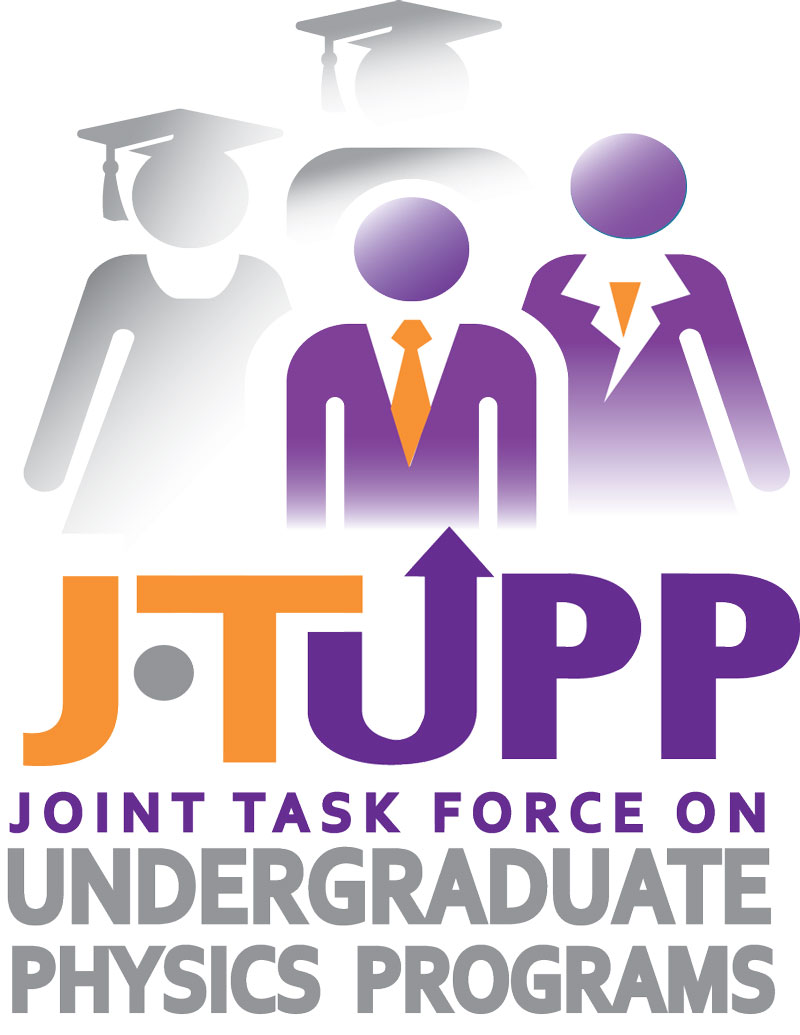
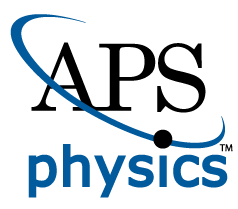

Final Report
Phys21: Preparing Physics Students for 21st Century Careers
Members of academic physics departments have long prided themselves on preparing undergraduate students for careers in physics. For many faculty members, a successful physics career means an academic research and teaching position like the ones that they themselves hold. However, the overwhelming majority of people who receive a bachelor’s degree in physics are employed outside academia for all or part of their careers, and are engaged in a wide variety of work. About half of this work is in the private sector, and the remainder is in colleges and universities, high schools, the military, and national laboratories. Few physics programs are explicitly designed to prepare students for this likely career outcome.
This report provides information about the skills and knowledge that employers of physicists are seeking, and describes ways in which physics departments can help students acquire those skills and that knowledge. Not only will departments that take up this challenge and provide the preparation their graduates need better serve all of their current students, they are also likely to attract a more diverse set of students with a broader range of career interests. In an era in which academic institutions are increasingly scrutinized regarding the return on investment that their programs provide to students (in the form of enhanced employment prospects), it is in physics departments' interest to recognize the importance of this challenge.
This report comprises an assessment of the employment landscape that physics bachelor's recipients are entering; a compilation of the knowledge, skills, and attitudes that graduates need for successful careers; a set of learning goals that physics departments can adopt to promote their graduates' success; and descriptions of ways that physics departments, perhaps with assistance from industrial partners, professional societies, and funding agencies, can ensure that those learning goals are met.
Members
- Paula Heron, co-chair, University of Washington
- Laurie McNeil, co-chair, University of North Carolina, Chapel Hill
- Douglas Arion, Carthage College
- Walter Buell, The Aerospace Corporation
- S. James Gates, University of Maryland
- Sandeep Giri, Google Inc.
- Elizabeth McCormack, Bryn Mawr College
- Helen Quinn, Stanford Linear Accelerator Center
- Quinton Williams, Howard University
- Lawrence Woolf, General Atomics Aeronautical Systems
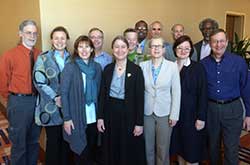
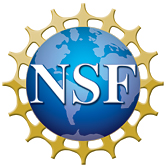
This material is based upon work supported by the National Science Foundation under Grant No. 1540570.

